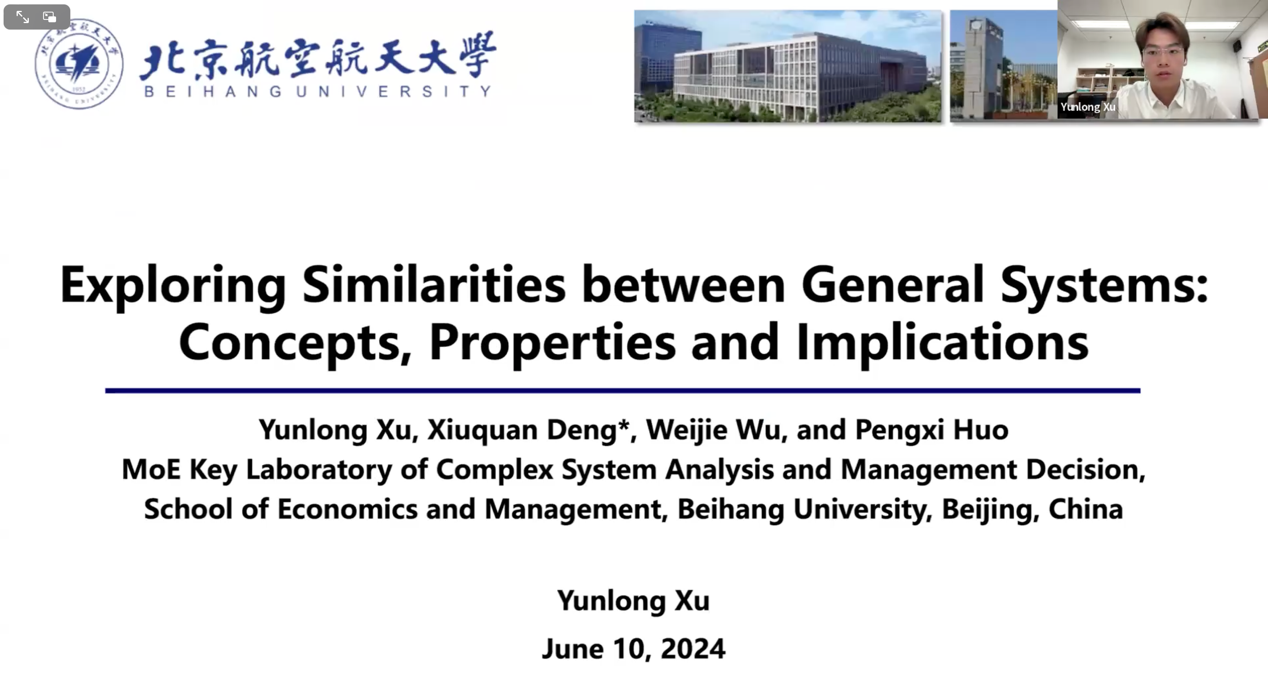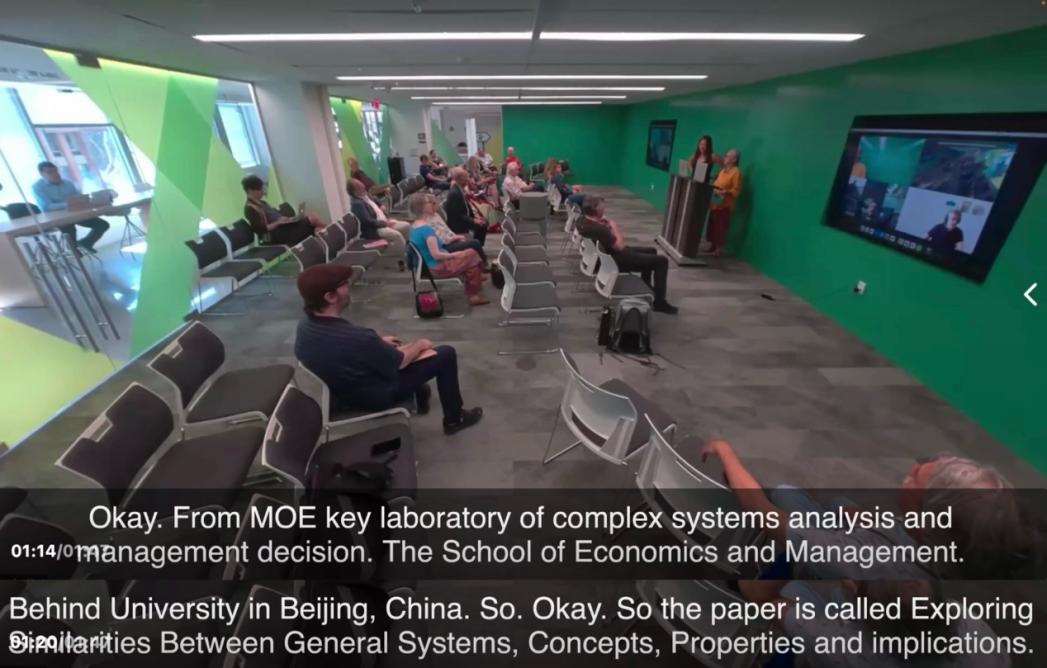Recently, the 68th International Society for Systems Science Annual Meeting (ISSS Annual Meeting) was held grandly in Washington, USA, from June 9th to June 13th. Xu Yunlong, a Ph.D. candidate in Management Science and Engineering from the School of Economics and Management, Beihang University (under the supervision of Professor Deng Xiuquan), presented a report titled ‘Exploring Similarities Between General Systems: Concepts, Properties, and Implications’ at the conference. This paper won the only Wickes Award at the conference.

The ISSS (International Society for Systems Science) is one of the earliest organizations globally dedicated to interdisciplinary research on complex systems, founded in 1956 at Stanford University by the pioneers of systems science such as Bertalanffy, Boulding, Gerard, and Rapoport. The ISSS aims to develop theoretical systems applicable to multiple traditional knowledge domains, facilitate beneficial transfers between different fields, and promote the unity and progress of science. As an important academic exchange event of the ISSS, the annual meeting attracts hundreds of experts and scholars from academia, business, government, and non-profit organizations each year, aiming to share the latest research findings, foster interdisciplinary collaboration, and drive the development of system science theory and practical applications.
The Sir Geoffrey Vickers Award is one of the three major awards presented at the International Society for Systems Science Annual Meeting, recognizing outstanding contributions to the application of systematic methods in social sciences, humanities, and arts. This award is not necessarily given every year and is only granted when the submitted paper meets high standards, with at most one peron receiving it each year, making it highly prestigious.

The award-winning paper, titled "Exploring Similarities Between General Systems: Concepts, Properties, and Implications," primarily delves into the fundamental characteristics and laws of system similarities, constructing an interdisciplinary conceptual model for system similarity. By analyzing various attributes of system similarity, including systematicity, hierarchy, comparability, dynamics, adaptability, degree, causality, and relativity, the paper proposes a systematic theoretical framework to explain and analyze similar phenomena across different domains. This research not only offers fresh perspectives and methodologies for advancing system science theories but also provides robust support for research in multiple disciplines such as management science, social science, cognitive science, and beyond.